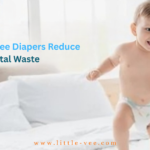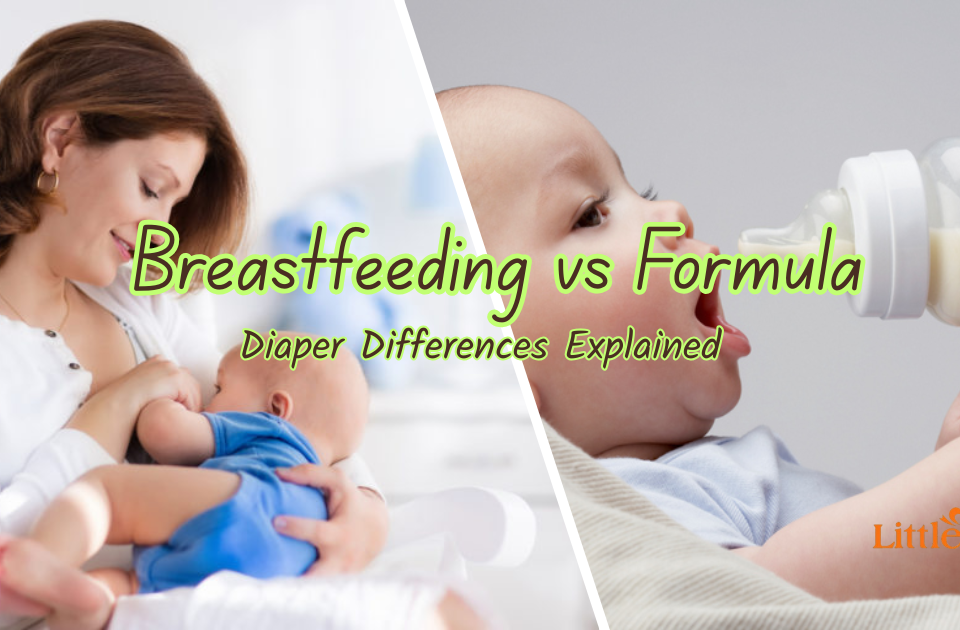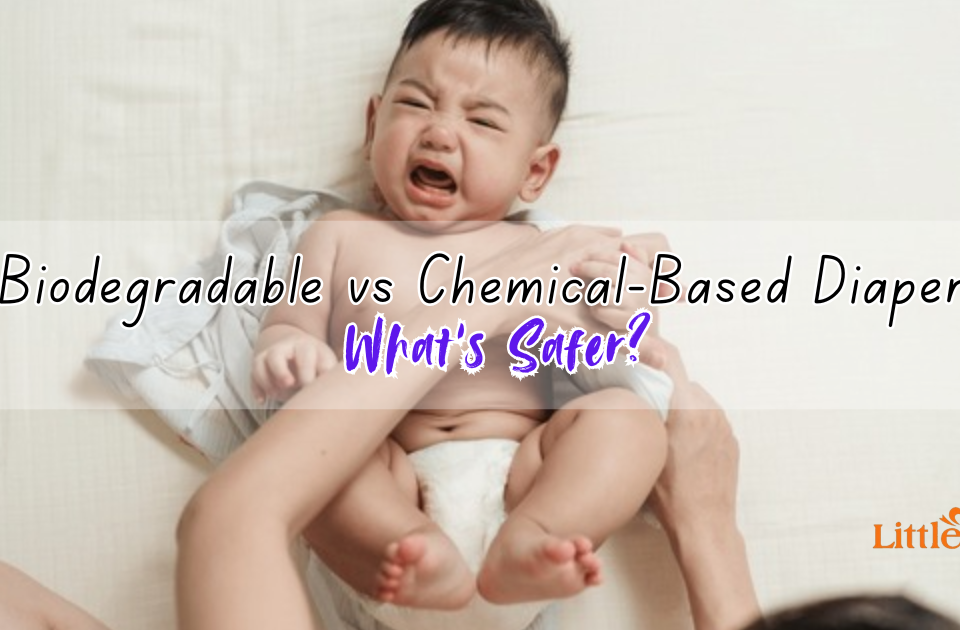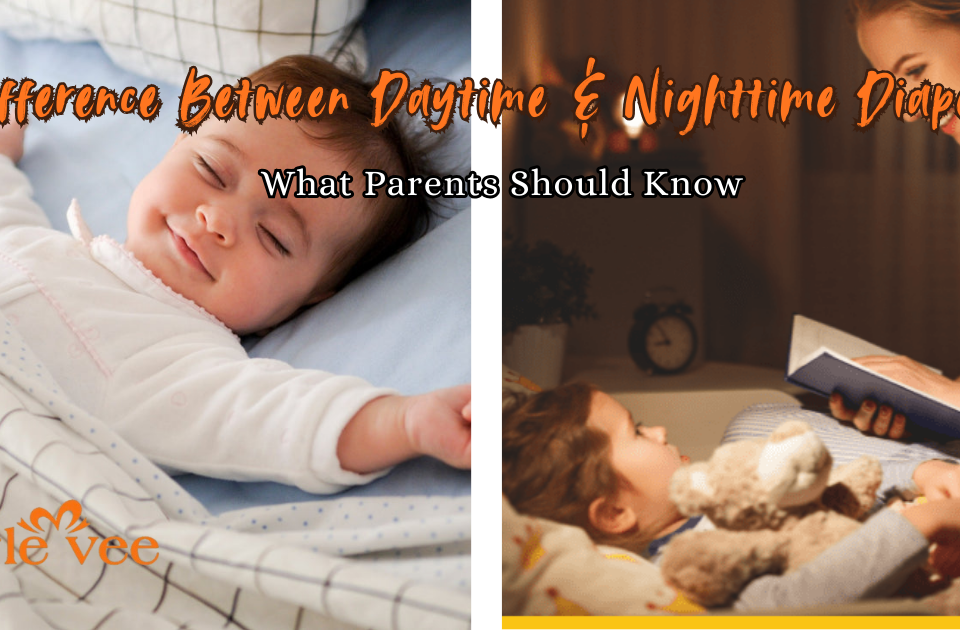
Why Your Baby’s Diaper Should Be Fragrance-Free
August 14, 2025
How Little Vee Diapers Reduce Environmental Waste
August 21, 2025With growing awareness around sustainability, many parents in the USA are asking:
Are eco-friendly diapers really better for the planet—or just a marketing trend?
The truth? Yes—eco-friendly diapers can make a meaningful difference, but it depends on how they’re made, used, and disposed of. Let’s break it down so you can make an informed choice for your baby and the environment.
👶 What Are Eco-Friendly Diapers?
Eco-friendly diapers are designed with the goal of reducing environmental harm. They typically use:
- Plant-based or renewable materials
- Sustainably sourced pulp
- Biodegradable or compostable layers
- Minimal chemical processing
- Recyclable or compostable packaging
Some are disposable with a lower carbon footprint, while others are fully compostable or reusable (like cloth diapers).
🌿 How Traditional Diapers Impact the Environment
Conventional disposable diapers are convenient—but they come at a cost:
- Over 20 billion diapers are thrown into U.S. landfills each year
- Each one can take up to 500 years to decompose
- They’re made using petroleum-based plastics, chlorine bleach, dyes, and fragrances
- The production process consumes water, energy, and trees
Even though they keep your baby dry, traditional diapers leave a long-lasting footprint on the planet.
♻️ How Eco-Friendly Diapers Help
Here’s why switching to eco-friendly baby diapers with shea butter can reduce your impact:
1. Lower Waste
Many eco-friendly diapers are partially biodegradable—meaning they break down faster and contribute less to landfill build-up.
2. Safer Production
Eco brands often avoid harmful chemicals, chlorine bleaching, and synthetic fragrances—making production gentler on the environment and your baby.
3. Renewable Materials
Using sustainably harvested bamboo, TCF (Totally Chlorine-Free) wood pulp, or sugarcane-based plastics reduces reliance on fossil fuels and protects forests.
4. Healthier for Baby, Too
Fewer chemicals = lower risk of rashes or allergic reactions. It’s a win-win for your baby’s skin and the earth.
⚠️ The Catch: Not All Eco Diapers Are Equal
Just because a diaper says “eco” or “natural” doesn’t mean it’s fully sustainable. Watch out for:
- Greenwashing: Vague claims with no certifications
- Hidden plastics: Some “plant-based” diapers still contain non-biodegradable layers
- Lack of transparency: Brands that don’t disclose full material lists
Look for trustworthy certifications like:
- FSC® (Forest Stewardship Council)
- OK Compost / TÜV Austria
- OEKO-TEX® or EWG Verified
- B Corp or Climate Neutral
At Little Vee, we believe in full transparency—and we’re committed to reducing our footprint while keeping babies dry and happy.
💡 Are Cloth Diapers Better?
Cloth diapers are reusable and can significantly cut down on waste—but they require water and energy for washing.
Eco disposables offer a balance: less waste than traditional diapers and more convenience than cloth.
It’s all about what works for your lifestyle—and how you manage the trade-offs.
💛 Final Thoughts from Little Vee
So, are eco-friendly diapers really better for the planet? Yes—especially when they’re made responsibly and used mindfully. While no diaper is impact-free, eco-friendly options help reduce waste, protect natural resources, and support a cleaner future for our children.
At Little Vee, our eco-conscious diapers combine sustainability, safety, and comfort—because we believe caring for your baby should also mean caring for the earth they’ll grow up in.





